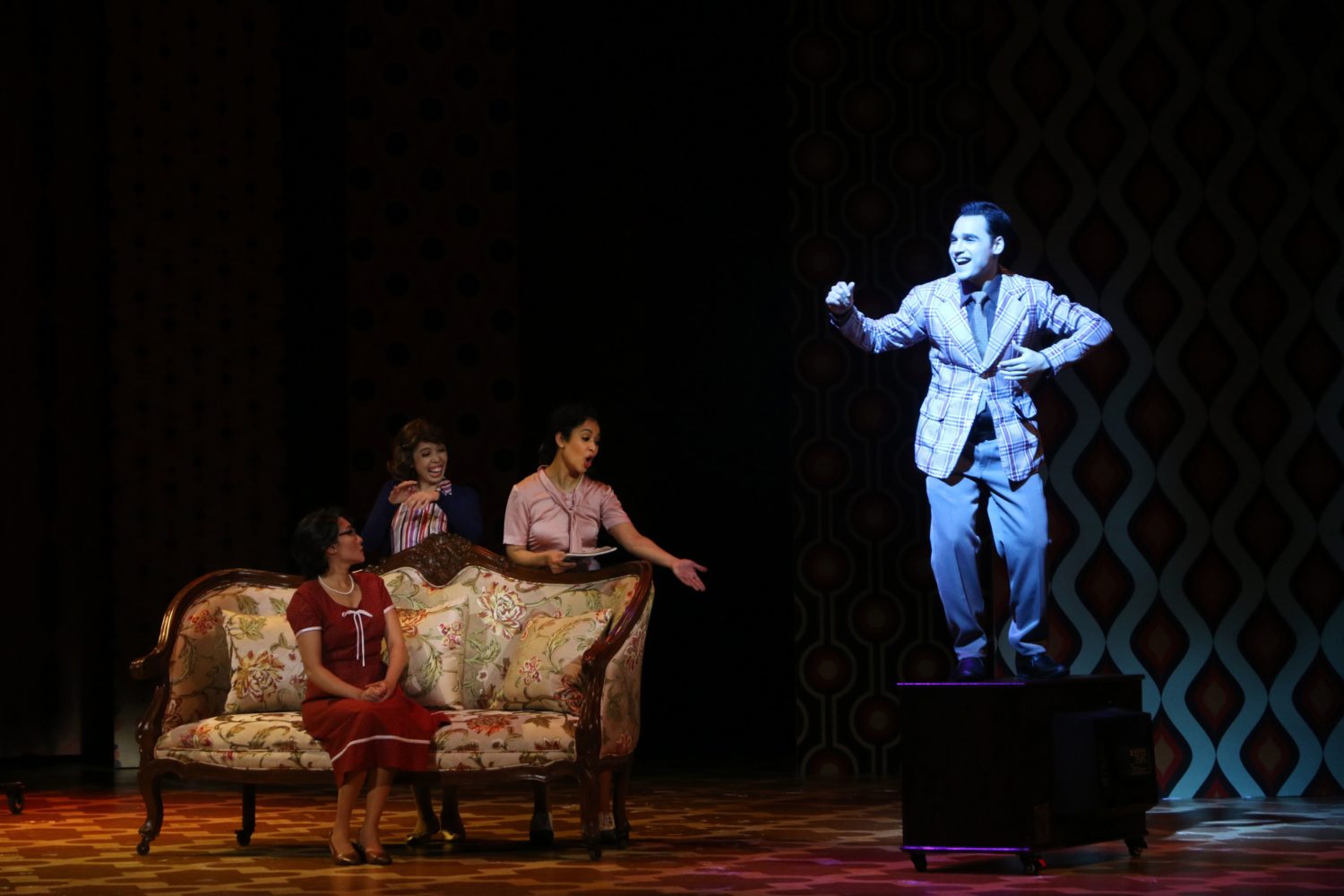The whole of the Meralco Theater roared to a thunderous applause as Kayla Rivera, garbed in a sweet, flowy dress, sang the final and titular song, “Beautiful” behind the piano to the delight of opening night theater goers. Much like in a congregation filled with faithful worshippers, the resounding applause continued until the lights dimmed and the audiences rose from their seats and clapped and grooved as each of the characters returned for the curtain call to the tune of the track “I Feel the Earth Move”.
The loudest cheers, as is expected, were directed to Rivera who held her own and drove the first night of “Beautiful: The Carole King Musical” to a rousing success. She played Carole King in Atlantis Theatrical’s production of the multi-award-winning bio jukebox musical chronicling the life and aural history of the genius behind hit after hit that pretty much characterized the era.
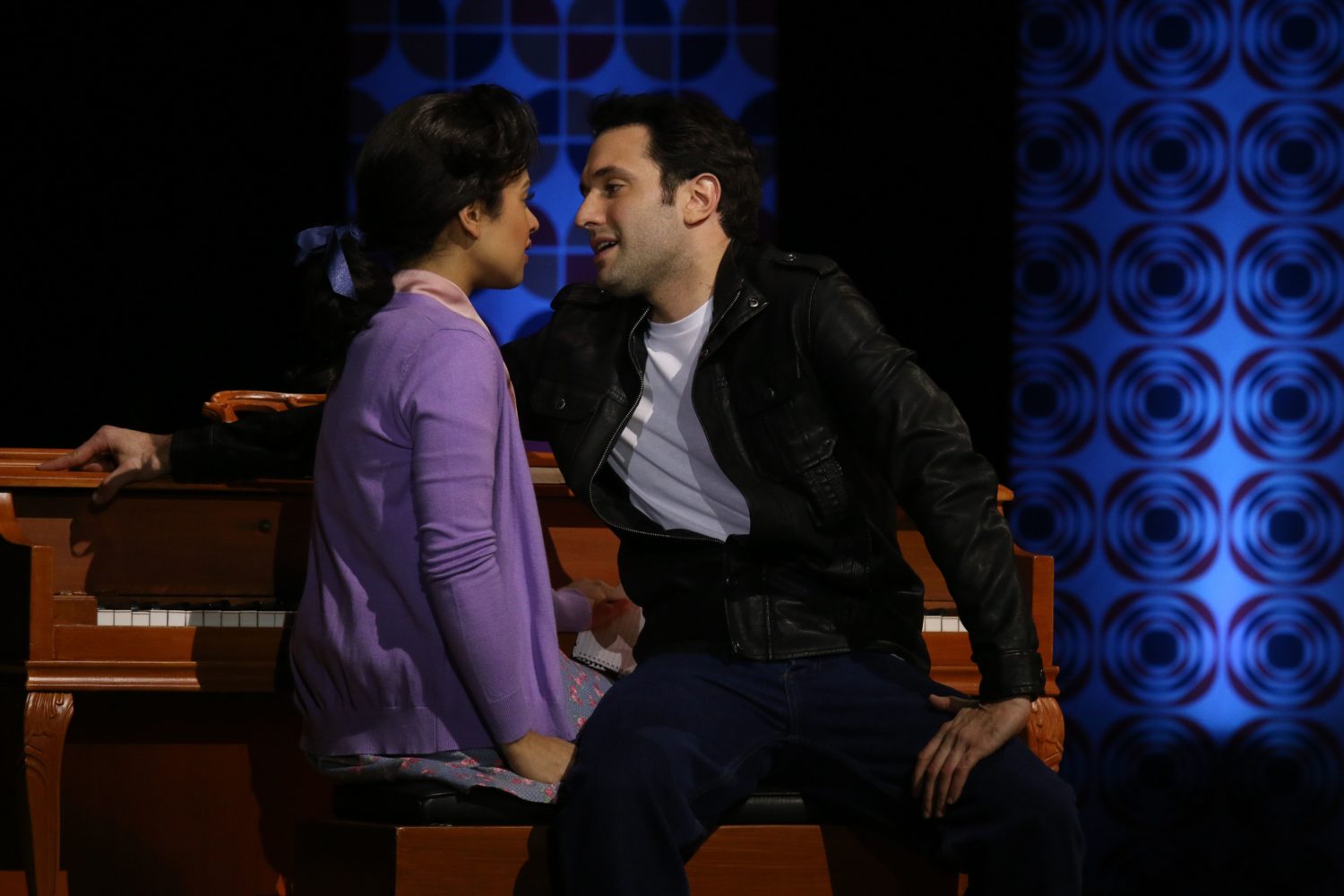
It was in 1971 when King released “Tapestry”, an album that would solidify her celebrity and hail her to the pantheon of icons that would influence the music industry to what it is today. The album would eventually go on to become a Billboard Album chart number 1 for over 15 weeks. More success then followed as it collected the Album of the Year, Record of the Year for “It’s Too Late” and Song of the Year for “You’ve Got a Friend” plum, the following year.
Easily put, an album as game-changing and trailblazing as “Tapestry” sure packed a rich history and “Beautiful” trails that very journey, showcasing the highs and lows in the life of the genius behind its songs—years before she stepped onstage and sang her own songs.
We see King first as a doe-eyed 16 year-old dreamer who would take on the adventure of going to the city to sell her first song to Don Kirshner (played by Jamie Wilson) until she meets Gerry Goffin (Nick Varricchio), who would turn out to be her husband and songwriting partner. This whirlwind romance will result into a child and a string of hits that would make them an irresistible couple and their story will continue to unfold as backdropped by early to mid-1960’s New York’s Brill Building.
The entirety of the first act would comprise of King’s and Goffin’s career-building journey as purveyors of music during the era, creating songs for top acts like The Drifters, to the Shirelles, and Little Eva. They would then form a life-long special relationship with rivals and friends Barry Mann (George Schulze) and Cynthia Weil (Mikkie Bradshaw-Volante), who would also set out to release a great bevy of hits for the biggest of names during their time.

Things take a dark turn in the second act when King was faced with life-changing decisions that would greatly involve her life with Goffin, whose constant philandering ways and inexplicable search for meaning would then plummet him to a deep dive into depression, that would, in turn, test King’s resolve. Not long after, she would decide to pack her bags to California to sing her own compositions—stepping out of the shadows of not just her faulty marriage but of other people bringing life to her masterpieces. “Tapestry” would then echo the pain, tragedy, and newfound sense of self that would make her into the woman that she has become.
Jukebox musicals would often employ a fool-proof formula of using familiar music to appeal to the sensibilities of its audiences. For “Beautiful”, its narrative device would make use of a common pattern: songwriters translating their personal experiences into masterpieces, that would, almost instantaneously lead us to witnessing the songs come to life—be it by the lead characters singing their own songs or the impressive support crew popping in and out of the stage dazzling us with their renditions. This kind of pattern, even with how familiar or easily recognizable the songs are, could easily wear thin, but its Director Bobby Garcia’s topnotch direction that made each number more interesting and captivating than the last. And he does this so effortlessly at the steering wheel, bringing the world-class talent of its cast to the fore.
Interestingly, the cast is a great preview of the future of the local theater scene. We have today’s young talents paying homage to such iconic characters from decades past, effectively showing us their unparalleled vocal and acting skills.
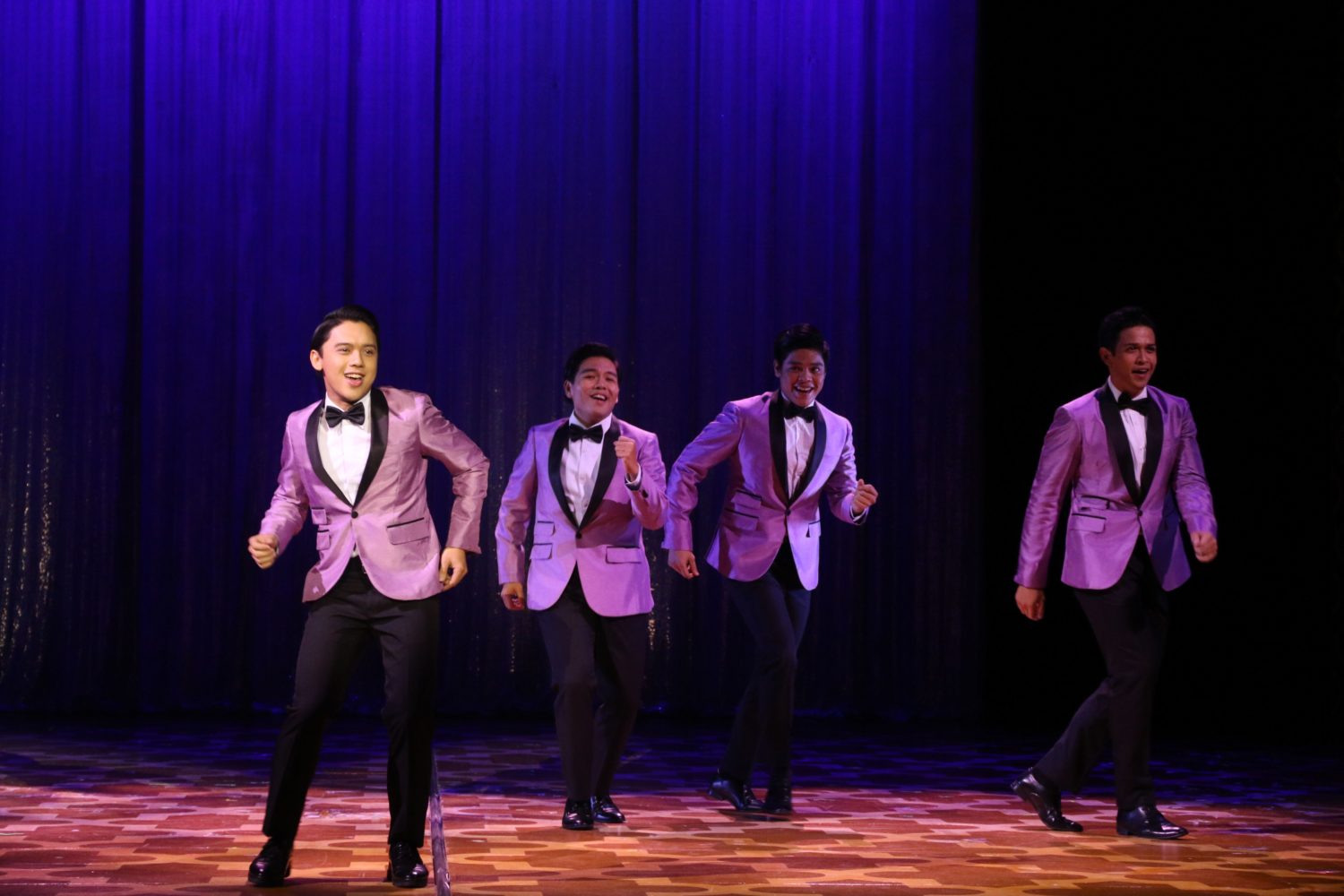
The four-man team of Tim Pavino, Arman Ferrer, Markus Mann, and Jep Go stood onstage, brimming with so much charm as the dapper members of The Drifters. Gab Pangilinan brought such finesse as lead of the Shirelles, turning Goffin’s and King’s “Will You Still Love Me Tomorrow?” into gold. Teetin Villanueva captivated the audiences as the babysitter-turned-chart topper with the “The Loco-Motion”. Great cheers were also showered Rhenwyn Gabalonzo as his deep baritone gave chills, stepping in the shoes of Bill Medley for The Righteous Brothers’ rendition of “You’ve Lost that Loving Feeling”, Dean Rosen as Nick of the Bitter End nightclub and even Assistant Director, Nelsito Gomez as Neil Sedaka.
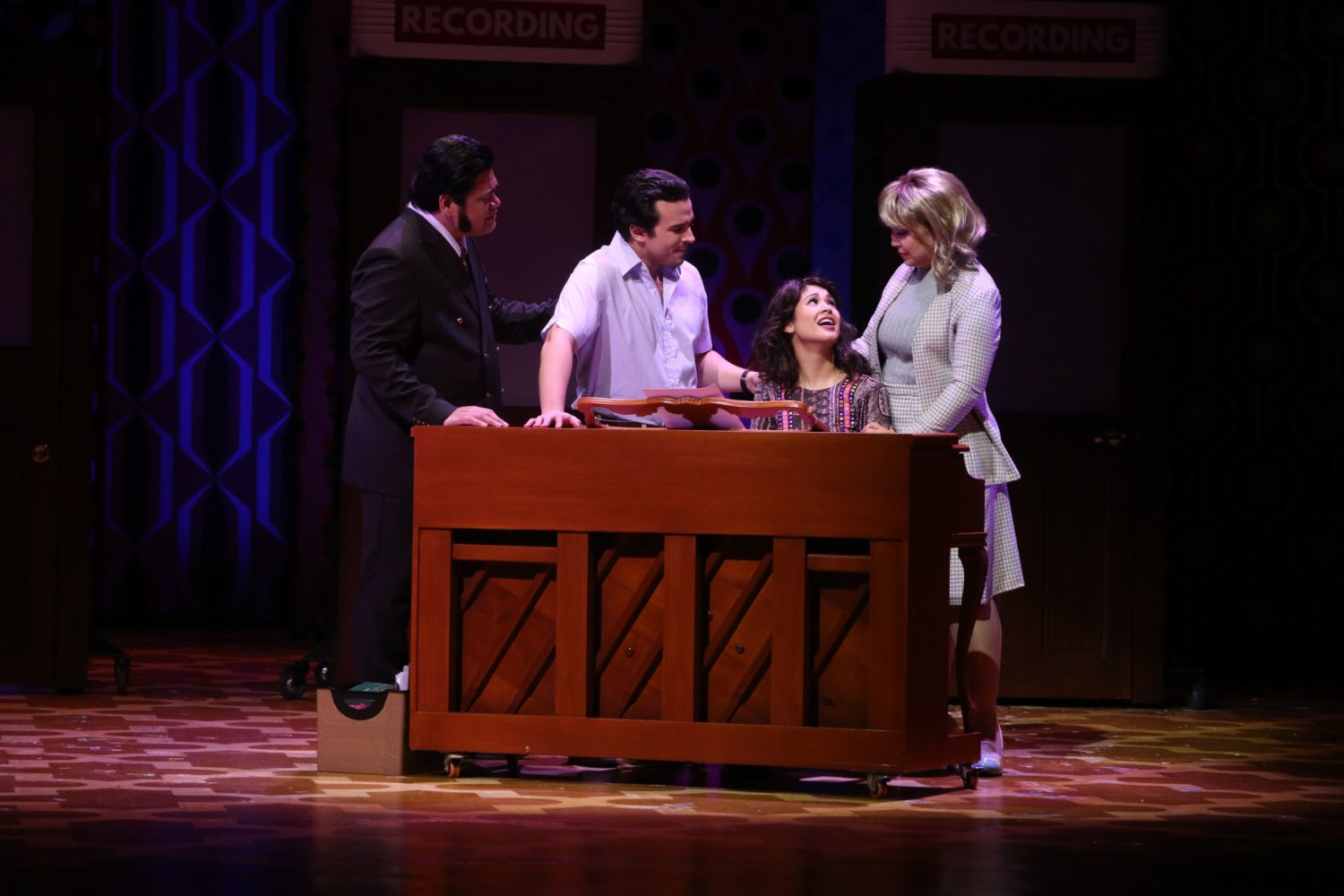
But of course, it was the group of Schulze, Volante, Varricchio, and Rivera that serve as ringing reminders of how great the future is for theater in the local and the global scene.
Varricchio’s authentic charm radiates onstage. Schulze and Volante are stars in their own rights, lighting up the stage with their every scene what with their impeccable comedic timing and impressive vocals. With the two characters providing most of the comic relief in the entirety of the two-hour-and-a-half-long production, it would be easy to get lost in the comedy and be swallowed whole, especially for Rivera whose role called for a more subdued, nuanced portrayal. But she did this with so much gravitas and sincerity that allowed the audiences to join her as she navigated through her internal journey from an old-fashioned girl trying to make her mark, to an empowered woman ready to take what is rightfully hers.
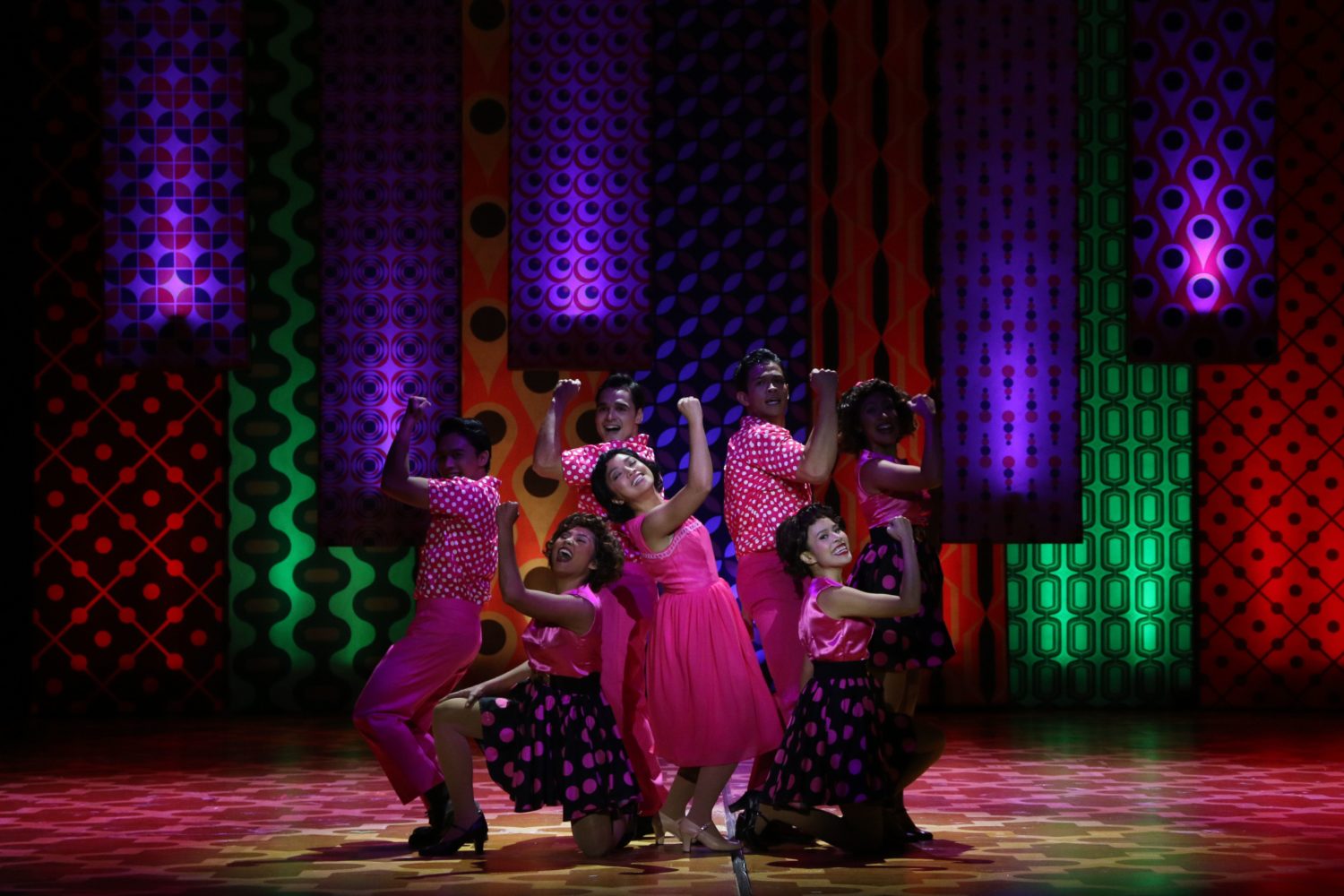
The splendid performances, complemented by Faust Peneyra’s and Aaron Porter’s vibrant set and lighting design, respectively, makes this production a heartwarming, earth-moving musical triumph. Simply put, this extraordinary trip down memory lane can only be described in one word: beautiful!



